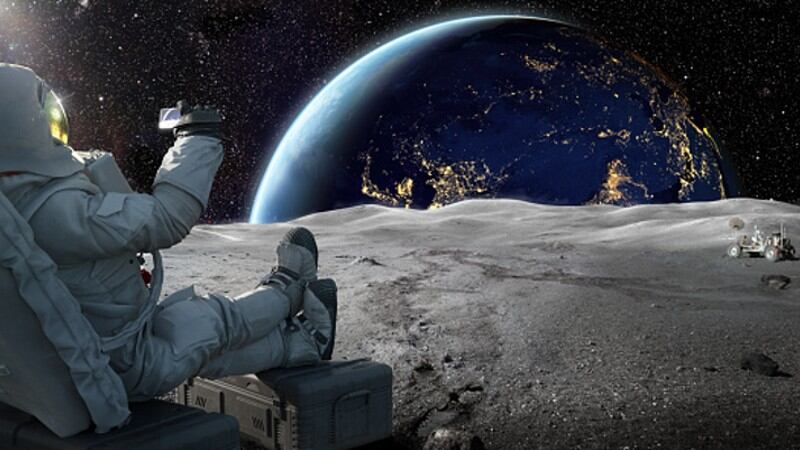The Artemis Program is an international programme headed by the United States, and Japan announced last year that it will be participating in this programme which aims to return humans to the surface of the moon by 2024. It would be the first manned lunar landing mission since Apollo 17 back in 1972.
“In order for human beings to stay and work in outer space for a prolonged time [to carry out the mission objectives of] the Artemis Program, it is important to develop a practical space food solution to support this,” Japan’s Ministry of Agriculture, Forestry and Fisheries (MAFF) announced via a formal statement.
“Currently, even foods used on the International Space Station (ISS) are produced and processed on Earth, and then brought up – but for long-term sustainable manned space activities to be performed on the moon, on Mars or elsewhere in the universe, there is a need for food that dramatically improves the quality of life (QOL) in closed spaces and can be efficiently produced on the moon or elsewhere.
“Here, regenerative technologies that can make recyclable use of resources are needed to [ensure] the stability of this food supply.”
Amongst the technologies that Japan is prioritising includes advanced food production technologies which have till now been more commonly focused on the production of alternative protein to replace meat consumption across the globe, such as cultured meat and fermentation technology.
“We are assuming that the food production site will be installed on a lunar base, and will need to be equipped with items such as optimal environmental control, automated work equipment, as well as closed-type cultivation technologies that maximise production capacity,” said MAFF.
“[Some of the technologies we are looking at include] microalgae cultivation, advanced cultured meat technology and more – the focus is that the food supply system must be efficient in its production capacity and also its resource-regenerative functionality. Organic waste will be treated using both biological and physiochemical treatments.”
Raising the quality of life for astronauts who will be staring in outer space is also a priority, and here Japan is looking to also use technology to ensure that this is optimised.
“We will also be formulating QOL evaluation indicators which will be based on [life in a] closed and isolated environment, and develop sensing technologies and other solutions based on this,” said the ministry.
“The hope is that the optimisation of the food provided will be able to maintain and also improve their QOL – a QOL management system will also be developed in accordance with this.”
Prior to any interplanetary setup though, all technologies will first be put to the test with a lunar base simulation facility on Earth, and a space experimentation module to demonstrate the system integration of both the proposed food supply system and QOL improvement technology.
Current space foods
At present, space foods are mainly required to have a long shelf life and to be able to survive the transportation into space. Many big Japanese food and retail firms are involved in the production of these, from Nissin Foods’ ramen noodles to Morinaga’s milk powder to Lawson’s fried chicken.
But the hurdle here remains that these would often have to be processed products, and fresh produce is much more rarely available to ISS astronauts - microalgae-based foods firm Sophie’s BioNutrients’ CEO and Co-Founder Eugene Wang believes that advanced technologies, such as fermentation technology, have major potential to change that.
“Certain microalgae, like the strain we use, does not require sunlight but only nutrients, allowing us to grow it in a fermentation tank. This conserves the amount of space needed, and by controlling the conditions and nutrients it can grow very quickly with controllable functionalities,” he told us.
“This technology would allow for astronauts making a journey even to Mars and back, much less the moon, to have a nutritious, sustainable, fresh food source even if they wished to stay there for a longer time.”



